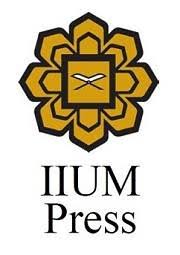The Moral-sexual Empowerment of Women and Children in Hadith Literature
DOI:
https://doi.org/10.31436/alburhn.v7i2.312Abstract
Sex, a human innate disposition, is a basic need for the survival of the human race. Islam, which acknowledges this intrinsic need, sets up the institution of marriage as the primary appropriate avenue for satisfying this desire and living a moral and peaceful life.
In marriage, two souls are united together so that they may enjoy tranquillity and stability with sincere love, mercy, and harmony. The teachings of Islam present a picture of gender equality. Integral to this policy of egalitarianism is to empower women at different societal levels, including generating awareness of sexual rights and duties, the lawful as well as the prohibited. This study briefly delineates the salient features of women and child sexual empowerment within the specific epistemic and cultural soil of Islamic tradition. The selected collections of hadith reports are taken from Jami‘ al-Usoul fi Ahadith al-Rasoul by Ibn al-Athīr. The linchpin of Islamic sexual empowerment is to staunchly advocate decency and maintain morality in the relationship between the two sexes in private and in public.
Downloads
References
Adamczyk, Amy and E. Hayes, Brittany. “Religion and Sexual Behaviors: Understanding the Influence of Islamic Cultures and Religious Affiliation for Explaining Sex Outside of Marriage.” American Sociological Review, 77, no. 5. (2012): 723-746. https://doi.org/10.1177/0003122412458672
Ahmed, Leila. Women and Gender in Islam: Historical Roots of a Moderate Debate. Yale University Press, 1992.
Al-‘Ajlouni, Kashf al-Khafa’. Edited by Husam al-Qudsi. Cairo: Maktabat al-Qudsi, 1352 AH.
Ali, Syed Ameer. The Ethics of Islam. Calcutta: Thacker Spink Co, 1893.
Al-Bar, Mohammed Ali and Chamsi-Pasha, Hassan. Contemporary Bioethics: Islamic Perspective. Springer, 2015.
Batliwala, Srilath. “The Meaning of Women’s Empowerment: New Concepts from Action.” In Population Policies Reconsidered: Health, Empowerment and Rights. Edited by Sen, G., Germaine, A. and Chen, L.C. Harvard Centre for Population and Development Studies, 1994.
Al-Ghazali, Muhammad. Mi’at So’al ‘an al-Islam. Cairo: Dar Thabit, 1983.
Haque, Munawar et.al. Ethics and Fiqh for Everyday Life: An Islamic Perspective (IIUM Press, 2010).
Harris, Joshua. “Dating Influences Teen Attitudes Towards Sex.” In Teenage Sexuality: Opposing Views. Edited by Tamara L. Roleff. (San Diego: Greenhavens Press, Inc, 2001).
Ibn al-Athīr, Jami‘ al-Usoul fi Ahadith al-Rasoul. Damascus: Maktabat al-Halwānī, 1969.
Ibn Hanbal, Ahmad. Al-Musnad. Edited by Shu‘ayb al-Arna’ūt, et. al. Beirut: Mu’assasat al-Risalah, 1993-2001.
Ibn al-Qayyim al-Jawziyyah, I‘lam al-Muwaqqi‘in ‘an Rabb al-‘Alamin. Edited byAbu ‘Ubaydah Mashour Al Salman. Riyadh: Dar Ibn al-Jawzi, 1423 AH.
Chen, Yin-Zu and Tanaka, Hiromi. “Women’s Empowerment.” In Encyclopedia of Quality of Life and Well-Being Research. Edited by Alex C. Michalos. Dordrecht: Springer Netherlands, 2014.
Harvey, David. The Condition of Post modernity: An Enquiry into the Origins of Cultural change. Oxford: Blackwell, 1989.
Khan, Muhammad Aftab et. al. (eds). Sexuality Education from an Islamic Perspective. Newcastle: Cambridge Scholars Publishing, 2020.
Mawdudi, Sayyid Abul A‘la. Towards Understanding the Qur’ān, English version of Tafhīm al-Qur’ān. Translated and edited by Zafar Ishaq Ansari. Leicester: The Islamic Foundation, 2004.
Al-Nawawi, Al-Nawawi’s Forty Hadith. Translated by Ezzeddin Ibrahim and Denys Johnson-Davies. Riyadh: International Islamic Publishing House, 1997.
Perry, Susan. ‘Sol Gordon’s Crusade: Sex Education for Young People,’. Jan, 9, 1987, accessed August, 28, 2022. https://www.latimes.com/archives/la-xpm-1987-01-09-vw-2769-story.html
Al-Qaradawi, Yusuf. The Lawful and the Prohibited in Islam. Translated by Kamal al-Helbawy, et al. (Indiana, American Trust Publications, 1994).
Qutb, Sayyid. In the Shade of the Qur’an. Translated by Adil Salahi. Leicester: The Islamic Foundation, 2002-2008.
Sarwar, Ghulam. Sex Education: The Muslim Perspective. London: The Muslim Educational Trust, 1996.
Al-Shatibi, Al-Muwafaqat. edited by Abu ‘Ubaydah Mashour al Salmnn. KSA: Dar Ibn Affan, 1997.
Sheik, Muffti Allie Haroun. Sexual Issues in Modern Era and its Solutions in Islam. New Delhi: Adam Publishers, 2008.
Tandon, Tanu. “Women Empowerment: Perspectives and Views.” The International Journal of Indian Psychology, 3, no. 8 (1994). DIP: 18.01.134/20160303, ISBN: 978-1-365-12176-0
Downloads
Published
How to Cite
Issue
Section
License
In general, reusing or reproducing substantial portions of al-Burhān content requires permission. This includes the use of text, figures, tables, multimedia content, and any other material published in any issues of al-Burhān Journal of Qur'an and Sunnah Studies. For some instances, al-Burhān may make its content freely viewable; however, such material may require permission for reuse. To seek permission, please contact the editorial.









